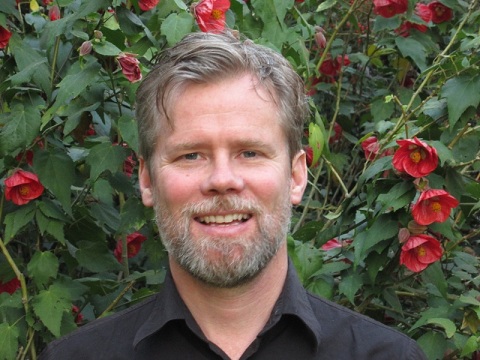When the world turns upside down, it's time to question all your assumptions. That seems to have been the premise for Mad City, an event for urban planners I recently attended in Riga, Latvia. Conceived by Neils Balgalis and his urban planning team at Grupa93, Mad City pushed the boundaries of what is normally discussed at urban planning conferences — some of the topics addressed include marijuana legalization, drones, squatting, self-driving cars, and Sharing Cities.
A theme that ran through the entire conference revolved around the question of power — who is a city for and who should control it?
- Brent Toderian, consultant and former chief planner of Vancouver, Canada, opened the conference with a plea for common sense urbanism that revolves around people's needs. Ever the pragmatist, Toderian warned about the uselessness of a city plan that isn't backed by the budget. "The truth about a city's aspirations isn't found in its vision," he said. "It's found in its budget."
- Ole Lykke Andersen, the archivist for Christiania, the famous decades-old long hippie squat and free town in Copenhagen, talked about the challenges of residents having almost too much freedom. A long standing feature of Christiania is an open air hash market on the main street. While in theory there are benefits to an open drug market, it has attracted criminal organizations that threaten the community. One of the community's slogans is: "If you want to live outside the law, you have to be honest." That seems hard to maintain when a lot of money is changing hands.
- Dan Hill, head of Arup Digital Studio, shared numerous, well-illustrated examples of city residents creating urban projects in the open space that's between the strictly private sphere and formal city planning sphere. These include Restaurant Day in Finland, resident-developed cooperative housing in Germany (Baugruppen), and houses that are half built on purpose so that residents can finish them on their own terms.
- There were many other interesting talks — Eaun Mills of Future Cities Catapult shared a report on the future of planning, Josephine Nellerup discussed Malmo, Sweden's thoughtful plans, and Troy Hayes explained his firm's use of Envision Tomorrow's online planning tool to increase resident participation in city planning. Videos of the talks can be found here.
My keynote directly centered on this theme. I argued that a Sharing City puts residents in control, and that's essential for the development of residents as human beings and a city's overall vitality. This was a welcome message at Mad City.
This theme seemed particularly poignant given the history of Riga, which has been fought over and/or controlled by Russians, Germans, Lithuanians, Poles, Swedes, and others since it was founded in 1201. After suffering centuries of foreign rule, Latvia became an independent nation in 1918 (with a 50 year occupation by the USSR, 1940-1991). Each regime imposed its own agenda on the capital. That sometimes meant dividing, destroying, or controlling it by force. For instance, a Soviet era town plan included a requirement that tanks be able to maneuver in the city's streets. Given this historial context, Mad City was a welcome chance to rethink old assumptions and imagine a city that works for residents.
Header photo Riga taken by Romeo Durscher using a drone made by DJI, Durscher employer.









